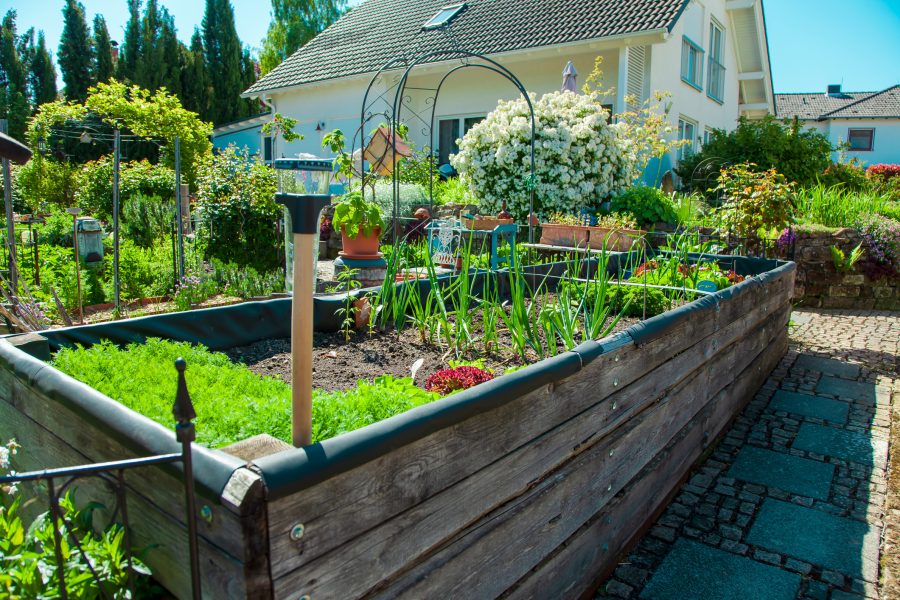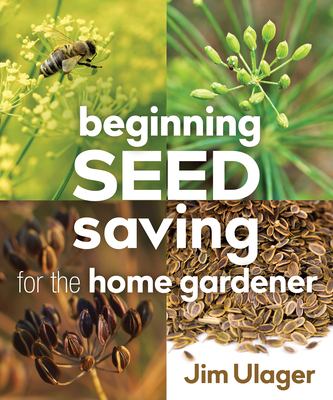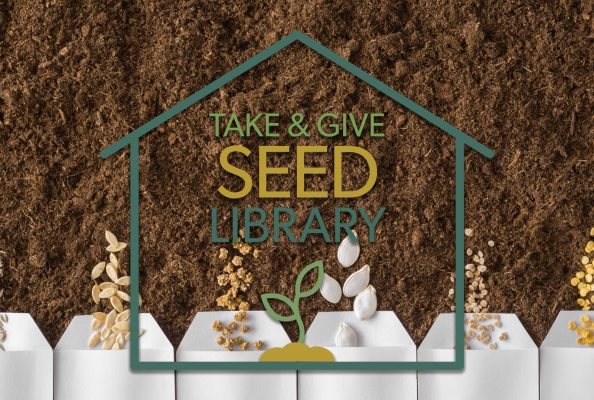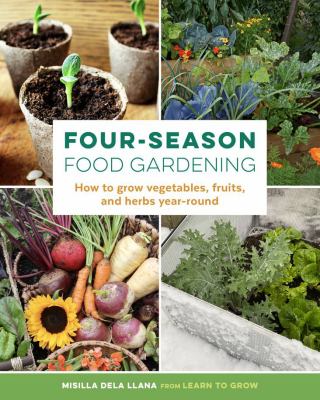Growing Your Garden with Resources for Seed Saving & Our Seed Libraries
Posted on August 31, 2022 at 6:00 am

By Abra Cole
If you’re a gardener, this time of year usually means two things: it’s seed saving time and we’re due to get our fall crops planted.
This summer has been a little strange for many Inland Northwest gardeners. The heat came later than usual, and it was preceded by unusually large amounts of rain. I don’t know about you, but my garden is behind schedule. Luckily, that just means we have more time to get ready for our next steps.
Help with Learning How to Save Seeds
Seed saving can be easy—at least for many types of seeds—once you get the hang of it. If you’re not sure where to start, you can watch our Seed Saving video series on YouTube to learn how to save several different types.
You can also find many books that discuss seed saving in our catalog. For the beginners, these titles will help you get the hang of seed saving:
- Beginning Seed Saving for the Home Gardener, by Jim Ulager
- Seed to Seed: Seed Saving and Growing Techniques for Vegetable Gardeners, by Suzanne Ashworth
- The Seed Garden: The Art and Practice of Seed Saving, by Micaela Colley
- The Complete Guide to Saving Seeds: 322 Vegetables, Herbs, Fruits, Flowers, Trees, and Shrubs, by Robert E. Gough
- The Manual of Seed Saving: Harvesting, Storing, and Sowing Techniques for Vegetables, Herbs, and Fruits, by Andrea Heistinger
The last title on the list is also an inspiring book to look though when you are dreaming up future gardening plans.
You can also find information about seed saving online. Some resources include Organic Seed Alliance and this Seed Saving Instruction Guide (PDF) from the Spokane County Master Gardeners Program.
The Importance of Seed Saving
You may wonder, Why save seeds at all? There are many great reasons!
For starters, saving seeds from the vegetables and flowers you love will allow you to plant the same varieties next year. Plus, seed saving involves seeing a stage of your plants that you might not otherwise have seen. It will also allow you to share those same varieties with other gardeners in your area. This is where the library comes in!
Five of our locations contain Seed Libraries. A seed library is a place to freely share seeds that have been successfully grown in our region. It is a place where members of the community can bring seeds that they have collected from their own gardens to share with other gardeners.
Anyone can visit our Seed Libraries, located at:
Each person is allowed to take home up to 12 seed packets, at no cost.
This means the continuation of our seed libraries depends on you, the gardener, the seed saver. We need your help to replenish our seed libraries drawers from year to year with vegetable and flower seeds for future growing.
You can bring your saved seeds into any of our libraries (even if they aren’t a Seed Library). We accept seed donations year-round, during open hours. Please don’t place your seed donations in the book drop.
You are welcome to bring dried seeds (heirloom only) in any type of container, and we will divide them into seed envelopes. Or you can pick up some of our seed saving envelopes on your next visit to one of our Seed Libraries and divide them before you bring them in.
Master Gardeners Seed Saving Program
Throughout the month of October, Master Gardener Steve Nokes will be presenting at each of our Seed Libraries on the topic of seed saving. No registration is required, and here are the days and times for this helpful program.
Seed Saving
Gardeners have been saving seeds long before the introduction of seed catalogs. Learn which seeds you can save and how to save them for next season’s planting with Master Gardener Steve Nokes. Adults
FAIRFIELD
Tuesday, Oct 4, 6:30–7:30pm
NORTH SPOKANE
Wednesday, Oct 5, 6:30–7:30pm
OTIS ORCHARDS
Wednesday, Oct 19, 6:30–7:30pm
SPOKANE VALLEY
Tuesday, Oct 25, 6:30–7:30pm
CHENEY
Wednesday, Oct 26, 6:30–7:30pm
Fall Planting
While we’re waiting for the summer crop to produce veggies and/or seeds, we can start making fall crop plans. There are many vegetables you can plant now for a fall harvest. Some examples include:
- Beets
- Broccoli
- Carrots
- Kale
- Lettuce
- Radishes
- Peas
- Spinach
There are also many good reasons to plant for a fall harvest. Here are four of them:
- Warm soil plus cooler air makes for happier plants. Most plants thrive in air temps of less than about 85 degrees. You may have noticed your plants’ leaves wilting a bit after enduring 90+ degree days for several days in a row recently.
- Bugs are less problematic in late summer and fall. Many plant-eating insects are more active in the spring and summer months.
- Water stress is reduced. Water won’t evaporate as quickly, leaving soil with an adequate moisture level for longer when the outside temps are cooler.
- Gardening is just more enjoyable. Garden chores are a more pleasant experience in 70-degree weather than they are in temperatures over 90 degrees.
Not only is this a great time to plant for a fall harvest, it is also an excellent time to plant next year’s perennials, bulbs, and early spring harvests. Planting perennials in the late summer and early fall will give them a chance to put down stronger root systems.
While most plants will go from seed to plant to flower to fruit and back to seed in a single growing season, other plants known as biennial plants have a two-season cycle. This means they need two seasons to complete their reproductive cycle to produce seeds.
Plants in the biennial category include carrots, kale, beets, cabbage, celery, turnips, and kohlrabi, to name a few. Planting this category of vegetables now will give them time to produce fruit for you to eat this fall, and if you allow some of these plants to stay in the ground until next spring, you will be able to harvest seeds from them at that time to plant again.
Here are some more gardening books to help you plan out your seasons and crops.
- Four-Season Food Gardening: How to Grow Vegetables, Fruits, and Herbs Year-Round, by Misilla Dela Llana
- The Month-By-Month Gardening Guide, by Franz Böhmig
- Growing Vegetables: All the Know-How and Encouragement You Need to Grow and Fall in Love With!, by Jessica Sowards
Whatever you plan to do with your garden, I hope you are getting out there, getting your hands a little bit dirty, and enjoying the benefits of planting, tending, harvesting, and consuming the fruits of your labors.
Of course, there are times—like this summer—when nothing seems to go as planned or when everything takes longer than usual to grow (you aren’t imagining it—it really is!). In this way, gardening can reflect life in general and how we have to be able to move with the changes as they come. Hopefully, the resources I’ve shared will help you do just that!

Tags: books, gardening, how to, seed libraries, seed saving



